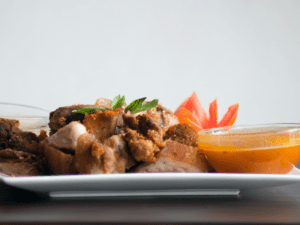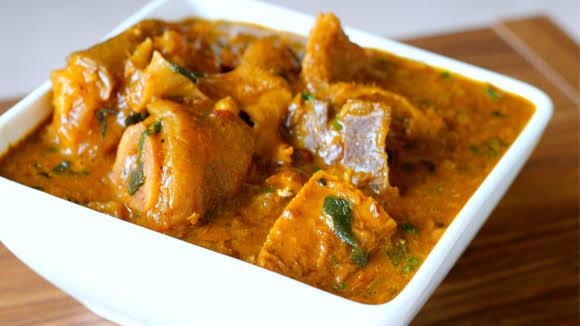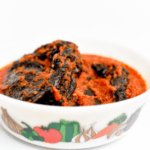Moving to a new nation is an exciting, opportunity- and challenge-filled trip. How to maintain a healthy diet while adjusting to the Western lifestyle is one of the key worries for African immigrant populations in Canada and the USA. Although the change from traditional diets to the availability of many foods might be daunting, it also offers the chance to discover a rich gastronomic landscape. For the sake of the wellbeing of people and families, it is crucial to strike a balance between preserving ethnic culinary traditions and adopting healthy eating practices. The techniques and advice in this article will assist African immigrants find a way to a healthy diet in their new setting while still respecting their cultural heritage.
We shall examine useful advice and methods that cater to the requirements of African immigrant populations in Canada and the USA in this post. Individuals and families may develop a unified and sustainable eating strategy by fusing the wisdom of traditional diets with the advantages of the Western way of life. Let’s set out on this trip together, enjoying the comforts of home while embracing the possibilities presented by a brand-new setting.
Embrace Cultural Diversity Along with Traditional Diet


One of the advantages of living in a multicultural society is the opportunity to explore diverse cuisines. While it may be tempting to completely adopt Western dietary habits, don’t forget to embrace the rich culinary heritage of your home country. Look for African grocery stores or markets in your area, as they often carry traditional ingredients that can help recreate your favorite dishes. Companies like Kabaia, known for their commitment to providing high-quality African food products, can be an excellent resource for sourcing authentic ingredients.
Plan Healthy Eating and Grocery Shopping
To maintain a healthy diet eating habit, it is essential to plan your meals in advance and create a grocery list accordingly. Identify key ingredients and plan your meals around them. Include a variety of fresh fruits, vegetables, whole grains, lean proteins, and healthy fats in your diet. Experiment with local produce and incorporate them into traditional recipes. For example, if you enjoy a traditional West African dish like jollof rice, try using local ingredients such as brown rice and locally sourced vegetables for a healthier twist.
Modify Traditional Recipes and Diets
Traditional recipes often rely on ingredients that may not be readily available in your new environment. However, this presents an opportunity to adapt and modify recipes using local substitutes. For example, if you can’t find certain leafy greens used in a traditional dish, try using spinach or kale instead. Be creative and experiment with new flavors while still honoring the essence of your traditional cuisine.
Mindful Portion Control
Western lifestyles often involve larger portion sizes than traditional diets. Use smaller plates and bowls to visually trick your brain into feeling satisfied with smaller portions. Aim for a balanced plate with half of it filled with vegetables, a quarter with lean protein, and the remaining quarter with whole grains or starchy vegetables.
Incorporate Physical Activity
Maintaining a healthy lifestyle goes beyond just diet. Regular physical activity is crucial for overall well-being. Find ways to incorporate physical activity into your daily routine, such as walking or biking to nearby destinations, joining local sports or fitness groups, or even exploring traditional African dance classes. Engaging in physical activities that you enjoy will not only help you stay fit but also provide an opportunity to connect with your cultural roots.
Educate Yourself About Local Ingredients
Take the time to learn about and familiarize yourself with local ingredients that are similar to those used in your traditional recipes. This knowledge will enable you to adapt your cooking while still maintaining the flavors you love. For example, if your home country uses a specific type of grain that is not easily available, explore alternatives like quinoa or couscous.
Adopt Homemade Healthy Eating Options
![]()
![]()
Explore Fusion Cuisine and Traditional Meals
Merge your traditional recipes with elements of Western cuisine to create exciting fusion dishes. This approach not only allows you to introduce new flavors and ingredients but also encourages culinary creativity. For example, you can experiment with adding African spices to traditional Western dishes like grilled chicken or roasted vegetables.
Seek Community Support
Connect with local African community groups or cultural organizations to share experiences and find support. These communities often organize events, workshops, and gatherings that revolve around traditional food. Participating in such activities will not only help you maintain your cultural identity but also provide an opportunity to exchange recipes, tips, and stories with like-minded individuals facing similar challenges.
Conclusion
Balancing traditional diets with Western lifestyles can be challenging, but with some planning and creativity, it is possible to maintain a solid and well-rounded approach to a healthy eating. By embracing cultural diversity, planning meals and grocery shopping, modifying traditional recipes, practicing portion control, and incorporating physical activity, African immigrant communities can nourish their bodies while preserving their culinary traditions. Remember, companies like Kabaia are dedicated to supporting your journey by providing authentic African ingredients and products. Embrace the rich tapestry of flavors and enjoy the best of both worlds in your new home.
FAQs
What is a traditional diet?
A traditional diet refers to the eating patterns and food choices that have been followed by specific cultures or regions for generations. It typically consists of locally available, seasonal, and minimally processed foods.
Why is it important to balance traditional diets with Western lifestyles?
Balancing traditional diets with Western lifestyles is essential to maintain good health and well-being. Traditional diets are often rich in whole, unprocessed foods, which provide necessary nutrients, while Western lifestyles can lead to poor dietary choices and health issues like obesity, heart disease, and diabetes.




